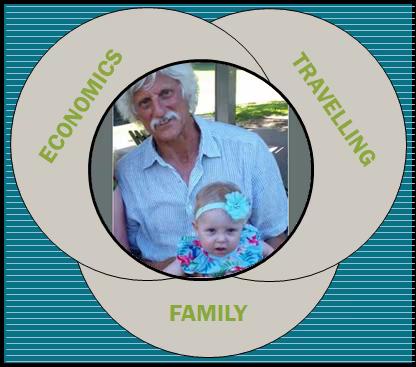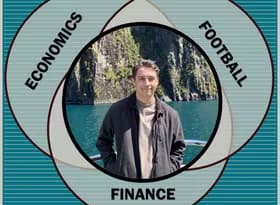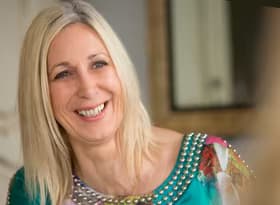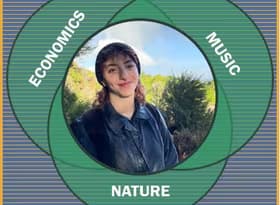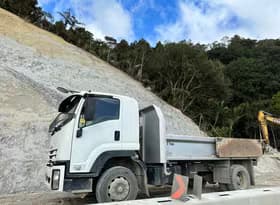New Zealand has been buffeted by storms recently. Both Cyclones Deborah and Cook left a trail of destruction in their path. The inevitable consequence of climate change is that we can expect more such extreme weather events in future – and the economic effects are far reaching.
Discussion of climate change and the associated economic effects is almost always a divisive topic, but not when one is speaking to Adolf Stroombergen, whose clear and analytical understanding of the issues puts it all in perspective. Adolf has a broad range of interests and is currently working on modeling economy-transport interaction – another subject that affects us all.
This month we chat to Adolf about a day in the life of an economist: how he came to be an economist and what he sees in the future.
Bio – Adolf Stroombergen
Studied at: Victoria University of Wellington
Resides in: Hataitai, Wellington
Jacqui: What awakened your interest in economics and started you on your career path?
Adolf: My interest was initially aroused at a careers evening at college. And my father and uncles were forever arguing about politics and economics, usually with more heat than light. I thought that I could change that by studying those subjects at university. That was naive – nothing changed.
JC: How would you describe your field of economics and what interests you? How has this influenced your work at Infometrics?
AS: Most of my work involves the development and use of models – general equilibrium models, econometric models, microsimulation models or simple spreadsheet models.The models have been used to research a wide variety of economic issues. Examples include the effects of climate change and adaptation to it, the design of the NZ Emissions Trading Scheme and other measures to reduce GHG emissions, the wider economic benefits of investment in transport infrastructure, the fiscal implications of increased longevity, student loans, and corporate credit risk. Of course as George Box said “All models are wrong but some are useful,” so I am aware of their limitations.
Economics teaches you (or should teach you) that there are rarely simple answers to economic questions. There are always opportunity costs, indirect effects and unintended consequences. Hence my interest in general equilibrium models.
JC: What are you currently working on? and how do clients benefit from what you do?
AS: I am currently working on modelling economy-transport interaction. Hopefully this will provide the client with more knowledge about the risks of investing, or not investing, in transport infrastructure.
JC: What advice would you give a younger version of yourself?
AS: Read a lot, especially journal articles if you want to keep up with the frontier of your fields of interest. If you get the chance, study or work overseas. I wish I’d done more of that. I enjoyed a brief period in the Faroe Islands developing a general equilibrium model of their economy.
JC: What changes or challenges do you see in the future?
AS: Two big issues:
- Climate change – the design and implementation of good policies to mitigate it and adapt to it.
- A fairer distribution of the gains from trade and new technology.
JC: What are the economic and social consequences of global warming for New Zealand?
AS: The effects of global warming on New Zealand include direct effects and indirect effects. The former include the effects on biomass production in fishing and farming, electricity generation (hydro, wind and solar), human health (more exposure to tropical diseases) and extreme weather events such as droughts and storms. In the longer-term storms plus rising sea levels could lead to major disruptions to low lying coastal settlements and infrastructure. Most of the direct effects are likely to be negative, but their magnitudes are very uncertain. Indirect effects arise primarily from the effects of climate change in other countries. The largest impact is likely to be on food commodity prices, which seem more likely to rise than fall, so favouring New Zealand via a positive terms of trade effect.This is potentially a very strong effect and may outweigh the direct effects of climate change on agricultural income. Overall though the costs of climate change are almost certainly higher than the costs of reducing greenhouse gas emissions. So while adapting to climate change cannot be avoided, adaptation is no substitute for reducing emissions.
JC: What do you enjoy doing when not at work?
AS: Spending time with family, walking, offshore travel (particularly as I have three children living abroad), and reading. I also enjoy the benefits that come with living in Wellington: arts festivals, jazz festivals, film festivals, Wellington on a Plate, sports events, and so on. I’m keen on good food although to look at me you might not think so.
JC: What is an intriguing fact about you?
AS: This is tricky one. I am very partial to single malt whisky, particularly whisky from Islay. I also enjoy cryptic crosswords. On a different tack, I spent many years on school boards, including eight as chairman of a girl’s college.
JC: Thank you for taking the time to speak to us Adolf. Climate change and transport issues affect us all – we will be watching your future publications with interest.
